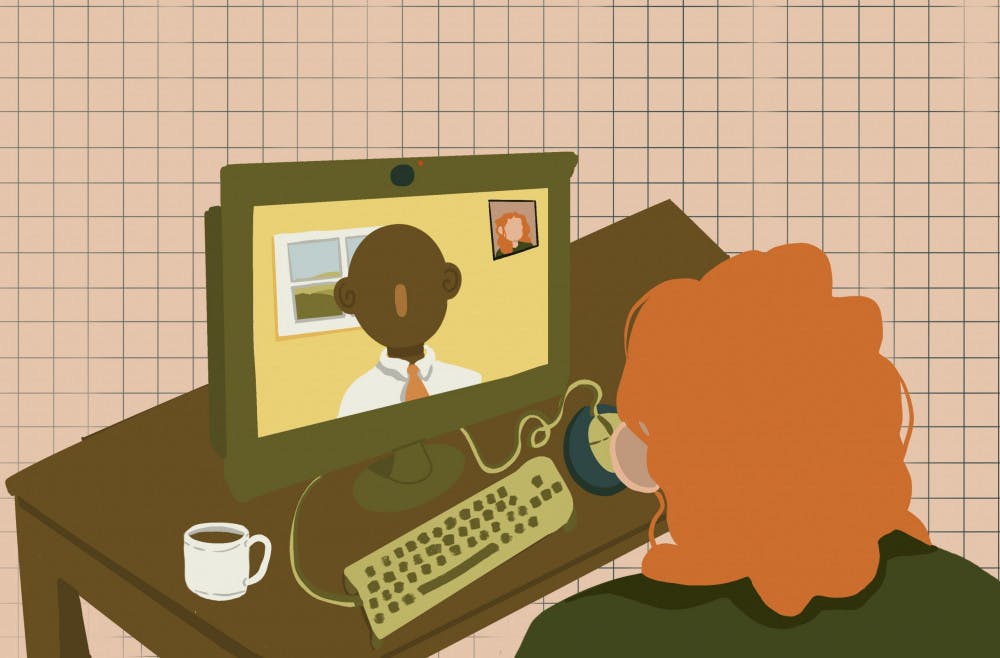
This story expands on reporting about a discrimination complaint filed by Amy Lam, an Asian American woman who applied for an associate professor position in Western’s design department that was ultimately offered to a white, male candidate out of a finalist pool of white candidates. Read the main story here.
One alternative to the design department’s current hiring process is the Search Advocate Program. This program started in 2008 at Oregon State University and trains a range of faculty, staff and students to act as advisors during hiring search and selection processes.
As the climate surrounding racial diversity changes, so do the emerging best practices for hiring in higher education. In 2008, the Search Advocate Program launched out of Oregon State University. The program trains a range of faculty, staff and students to act as advisors during the hiring search and selection processes.
In order to prepare future search advocates, they must attend a two-part workshop that informs them on the current research on diversity, implicit bias, legal aspects of hiring, inclusivity and best practices.
Anne Gillies, the Search Advocate Program director since the program’s inception, leads these workshops. Gillies said she prepares university employees to serve as outside counsel on hiring committees. This training focuses on diversity, equity and validity.
“We don't recommend a sort of lockstep, ‘everybody does everything exactly the same way’ sort of process, but we do have a couple of important tools that we ask that advocates try to use with every search,” she said.
While the search advocate does not necessarily have to be one single point person, Gillies said it helps to have someone on the outside.
“It's good to have somebody who is not meshed within the department’s norms and culture or its power dynamics, and who is accountable for this,” she said. “So they're outside the department, they don't have conflict of interest and their focus is strictly process.”
The search advocate’s primary role is to identify what Gillies calls “barriers to inclusion” and propose alternatives to the search committee. Part of this process is developing a screening matrix or a spreadsheet that mitigates structural and cognitive bias by mapping out qualifications.
The Search Advocate Program is designed to address bias and increase diversity, but Gillies said diversity is an umbrella term that encompasses equity and overcoming injustices, among many other factors.
(Can changing the status quo of candidates lead to more diversity? Read more here.)
“Diversity and hiring actually has two components,” she said. “One is to build a more diverse workforce, and the other is to build a workforce that is going to be welcoming and hospitable to a more diverse workforce. Both of those things are at play every time you do a search.”
Bonnie Brunt, dean of visual and performing arts at Spokane Falls Community College, started working with the Search Advocate Program at SFCC in 2014. Since then, hiring practices and outcomes have changed for the better, she said.
Before applying the Search Advocate Program, data the college found showed that screening committees were disproportionately eliminating ethnically diverse candidates.
“We said this is not acceptable,” Brunt stated. “We need to figure out what's going wrong and make sure that we have diversity all the way through and that we end up hiring diverse candidates.”
Prior to this, Brunt said when hiring managers or deans needed to fill a position quickly, they would recycle old, outdated job descriptions. Now, the hiring committee discusses job descriptions while a search advocate is present. This ensures that the descriptions list what is most desirable in a candidate while also challenging the committee’s thinking.
Between the two schools that make up the Community Colleges of Spokane, Spokane Falls Community College and Spokane Community College, Brunt said 23% of the positions the college hired for in 2016 went to people of color, 38% in 2017 and 44% in 2018 with a search advocate. Spokane Community College went from 12% in 2016 to 14% in 2017 and 15% in 2018 without a search advocate.
“What our search advocates do is make the search more equitable by removing barriers, not by giving anyone extra points, or by giving anyone an extra boost,” she said. “It's really by seeing the barriers that we've been putting in place without knowing it, and taking them away. So that's the structural part, and then with the cognitive bias. I tell people, you're not biased because you're a bad person. You're biased because you're a person.”





